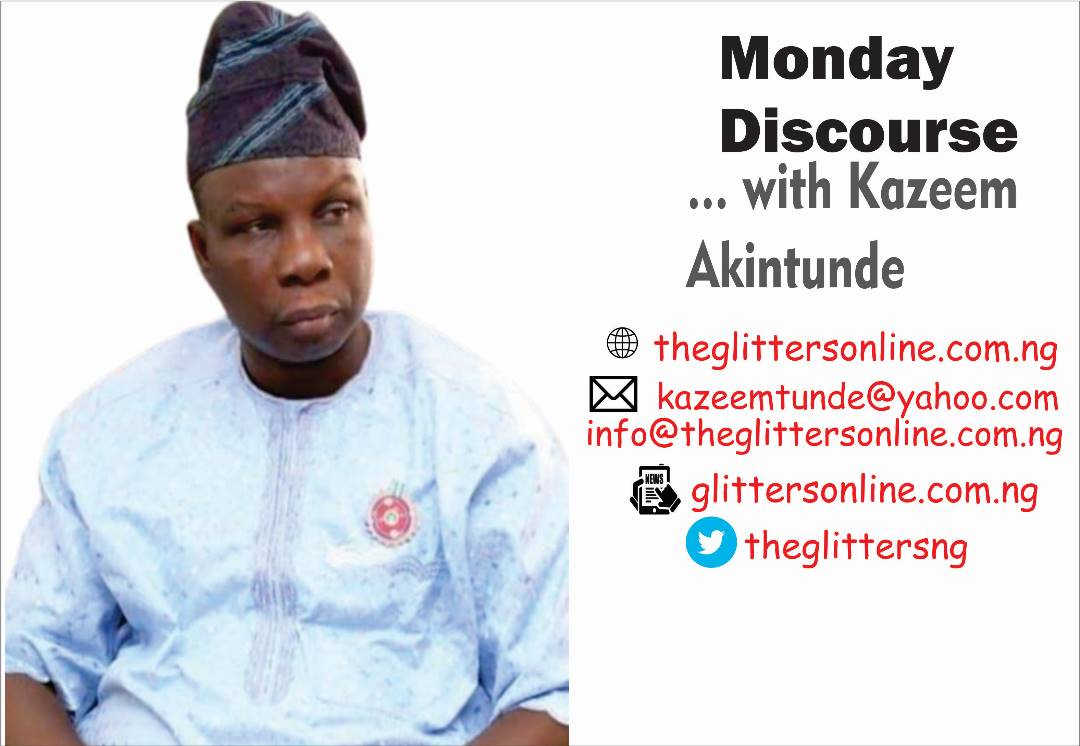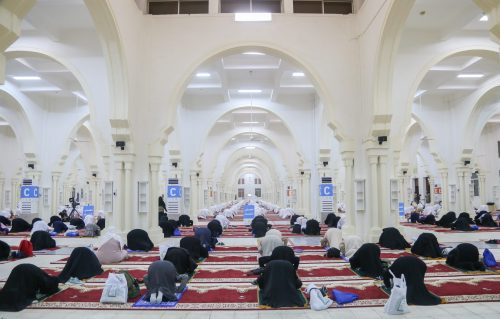Nigeria is presently reeling under the yoke of a heavy debt burden. Those managing the economy may paint a false picture of a rosy nation but Nigerians know that all is not well with the economy and the country through their empty pockets. Many Nigerians are perpetually broke, and can no longer meet up with daily living expenses. Their purchasing power has been dealt a mortal blow by hyper-inflation.
It is now a struggle to survive and more and more Nigerians are daily being pushed into poverty. The latest figure of 133 million Nigerians living below the poverty line is a sad reminder of the state of things in the country. While Nigerians are grappling with the challenge of surviving, our leaders are already mortgaging the future of generations unborn through the unbridled accumulation of debts. The long and short of what is going on in the economy is that Nigeria is broke and can no longer fund our budget. What is coming into the purse of the country is much lower than what we are spending, and to meet the shortfalls, we have resorted to taking loans – foreign and domestic.
Nigeria’s public debt reached N44.6 trillion in Q3 of 2022. This represents a 2.9 per cent quarter-on-quarter decline when compared to N42.84 trillion recorded in Q2 in 2022. The Debt Management Office, DMO, which disclosed this on its website, noted that the increase in public debt was due to new borrowings by the Federal Government to part-finance the deficit in the 2022 Appropriation Act, as well as new borrowings by sub-nationals. According to DMO, the total public debt stock comprises domestic debt of N26.92 trillion and external debt of N17.5 trillion. DMO said, “Total public debt stock which comprises the total domestic and external debt stock of the federal government of Nigeria (FGN), all State Governments and the Federal Capital Territory (FCT) stood at N44.06 trillion. In comparison, the total public debt figure as of June 30, 2022, was N42.84 trillion. The total domestic stock as of September 30, 2022, was N26.92 trillion, while the total external debt stock as of September 30, 2022, was N17.15 trillion. The increase in the Debt Stock was largely due to New Borrowings by the Federal Government to part-finance the deficit in the 2022 Appropriation Act, as well as, New Borrowings by sub-nationals.”
Data from the DMO’s external and domestic debt service also showed that the country spent N1.17 trillion on debt in Q3’22. This comprises N820.59 billion for domestic debt service and N356.92 billion ($801.23 million) for external debt service. Recently, the World Bank, in its International Debt Report, IDR, said that Nigeria spent $9.6 billion to service foreign debts in 12 years, from 2010 to 2021, adding that the nation’s debt stock is not reflected in the economy.
How did we get to this sorry state? Since 2015, when the present administration came into power, it embarked on gradual accumulation of both foreign and domestic debts to fund most of its infrastructural projects. While the loan portfolio kept on rising, earning in dollars by the federal government witnessed a sharp fall as the activities of criminals in the Niger Delta ensured that there is a huge shortfall from earnings from crude oil sales. Over 40 per cent of our crude oil ended up in the hands of criminals who are, in most cases, bigger than the state. Even when their nefarious activities was discovered after several years, the government lacks the capacity to bring these individuals to book. This has continue to put a lot of pressure on the government as it has become practically impossible to meet up with its obligations. One obligation that the federal government cannot run away from is servicing the debts.
As expected, the Federal Government, in 2016, spent almost a quarter (about 24 per cent) of its budget on debt servicing. Of the N6.6 trillion budgeted for 2016, the government earmarked N1.5 trillion for debt financing. The sum of N1.6 trillion was proposed for servicing debts out of the total of N7.3 trillion budgeted for 2017, while in 2018, the figure rose as N2.2 trillion or 24.17 per cent was pegged for debt servicing in the N9.1 trillion budget. In 2019, the government proposed to spend 24 per cent (N2.14 trillion) of the N8.9 trillion expenditure on debt service. In mid-September, Buhari sought the approval of the Senate to borrow $4 billion (4,054,476,863) and €710 million loan from bilateral and multilateral organisations to fund the deficit in the 2021 budget. The president said the loan request is an addendum to the 2018-2020 borrowing plan and that the new borrowing is to meet “emerging needs” for some “critical projects.” In July, the National Assembly approved Buhari’s request to borrow $8.3 billion and €490 million loans contained in the initial 2018-2020 borrowing plan.
Agreed that the borrowing spree has been on prior to the coming of the present administration, it has, however, gotten worse with Buhari in charge. Under the Umar Musa Yar’Adua/Goodluck Jonathan-led government between 2007 and 2011, domestic debt of the federal government increased from N2.17 trillion to N5.62 trillion. The foreign component of the debt also rose from $2.11 billion to $3.5 billion within the period.
As of then, the country’s exchange rate also moved from N116.8/$1 to N156.7/$1. The combined debt profile increased from N2.42 trillion to N6.17 trillion in four years, representing a 155 percent jump. Of the debt figure, Jonathan completed the tenure from May 2010 to May 2011 after the death of Yar’Adua. The period saw a surge in the federal government’s debt from N4.94 trillion to N6.17 trillion. This represents a 24.9 percent increase in one year. However, at the beginning of former President Goodluck Jonathan’s tenure in 2011, the Federal Government had an accumulated debt of N6.17 trillion. Analysis of the debt figure showed that local debt amounted to N5.62 trillion while foreign debt stood at $3.5 billion (about N548.65 billion, using the exchange rate of N156.7/$1). By the end of 2015, the foreign debt component hit $7.3 billion, while domestic debt increased by N8.4 trillion. The country’s exchange rate also stood at N197/$1. Overall, the federal government component of the total public debt increased from N6.17 trillion in 2011 to N9.8 trillion in 2015, representing an increase of N3.63 trillion or 58.8 percent.
When Muhammadu Buhari came to power in 2015, he inherited a N8.8 trillion federal government domestic debt. However, the figure rose to N16.02 trillion as of December 2020. Likewise, the nation’s exchange rate fell from N197 to a dollar in 2015 to N381 at the end of December 2020. Up from $7.35 billion in 2015, Nigeria’s external borrowings stood at $28.57 billion as of December, 2020. This means that the administration incurred $21.27 billion in foreign loans. By putting together external and domestic borrowing, Buhari had borrowed N17.06 trillion as of March 2021, using the N381 exchange rate. This represents an average of N2.83 trillion per year since 2015. Now, the nation’s debt profile is so humongous as to jeopardise the future of our children yet unborn.
The sad irony is the fact that the Olusegun Obasanjo administration few months before the end of its tenure, secured reprieve from our debtors in 2006, when Nigeria became the first African country to settle its public debt under a scheme devised to help the world’s poorest and indebted states. President Obasanjo paid off $18 billion to secure forgiveness of the balance of its nearly $30 billion debts to the London and Paris clubs of foreign creditors. But 16 years later, Nigeria’s public debt is crippling again, putting pressure on the government’s revenue and performance. A report by the World Bank placed Nigeria among the top 10 countries with the highest debt risk exposure. Nigeria is fifth with $11.7 billion debt exposure, behind India ($22 billion), Bangladesh ($18.1 billion), Pakistan ($16.4 billion), and Vietnam ($14.1 billion). In recent periods, there has been furore over Nigeria’s borrowing plans and debt profile. But while most Nigerians are complaining that the debt profile is unnecessarily high, those in government are insisting that there is nothing to worry about. Rather, the government is asking for more loans to finance its projects and meet obligations, even in the payment of salaries to federal civil servants.
Aside the federal government, most states are also reeling under huge debt burden. As expected, Lagos has the highest debt profile with N877.04bn domestic debt and $1.27bn foreign debt. It is followed by Kaduna, with a domestic debt of N86.86bn and external debt of $586.78m. The third highest debt is Rivers State, with a domestic debt of N225.51bn and foreign debt of $140.18m. The fourth highest debtor is Cross Rivers, with N175.2bn domestic debt and $215.75m external debt, followed by Ogun State, with N241.78bn domestic debt and $122.73m foreign debt. Others include Bauchi (N144.28bn domestic debt and $172.76m external debt); Enugu (N89.89bn and $123.02m); Kano (N125.19bn and $109.42m); Abia (N104.57bn and $95.63m) and Adamawa (N122.48bn and $77.01m). Other debtor states are Akwa Ibom (N219.62bn and $46.567m), Benue (N143.37bn and $30.47m), Borno (N96.33bn and $18.7m), Delta (N272.61bn and $60.05m), Ebonyi (N67.06bn and $59.84m), Gombe (N139.1bn and $46.93m), Jigawa (N44.41bn and $27.61m), Katsina (N62.37bn and $55.82m), Kebbi (N60.13bn and $42.40m), Kwara (N109.55bn and $45.94m), and Nasarawa (N72.63bn and $53.73m). Also on the list are Niger (N98.26bn and $69.27m), Oyo (N160.07bn and $76.97m), Plateau (N151.90bn and $33.74m), Sokoto (N85.58bn and $37.13m), Taraba (N90.81bn and $22.28m), Yobe (N92.86bn and $23.09m) and Zamfara (N109.69bn and $29.33m). The FCT had a domestic debt of N112.49bn and external debt of $25.38m. These states and the FCT owe up to 81.72 per cent of the N5.36tn sub-national domestic debts and 69.08 per cent of $4.56bn external debts. Out of the 28 states with the huge debt profile, only 11 of its governors are seeking re-election while the remaining are two-time governors who will leave the debts for incoming administrations.
The Director General of the Debt Management Office, Patience Oniha, has, however, insisted that there is nothing to worry about as we have the capacity to manage and repay those loans. She is the expert in charge of loans management but I believe that for us to get out of the debt quagmire, we need to increase revenue earnings, reduce corruption, do away with fuel subsidies, increase taxes for the rich, create jobs for millions of unemployed Nigerians and tackle the rot in the power sector so that Nigerians, especially those in the private sectors can be more productive. Unless we stop taking loans, many of which end in private pockets on which we spend more than half of our earnings servicing, we will get nowhere development-wise. It is my hope that it won’t get to a stage where our grandchildren will place curses on us after we are long gone.
See you next week.




